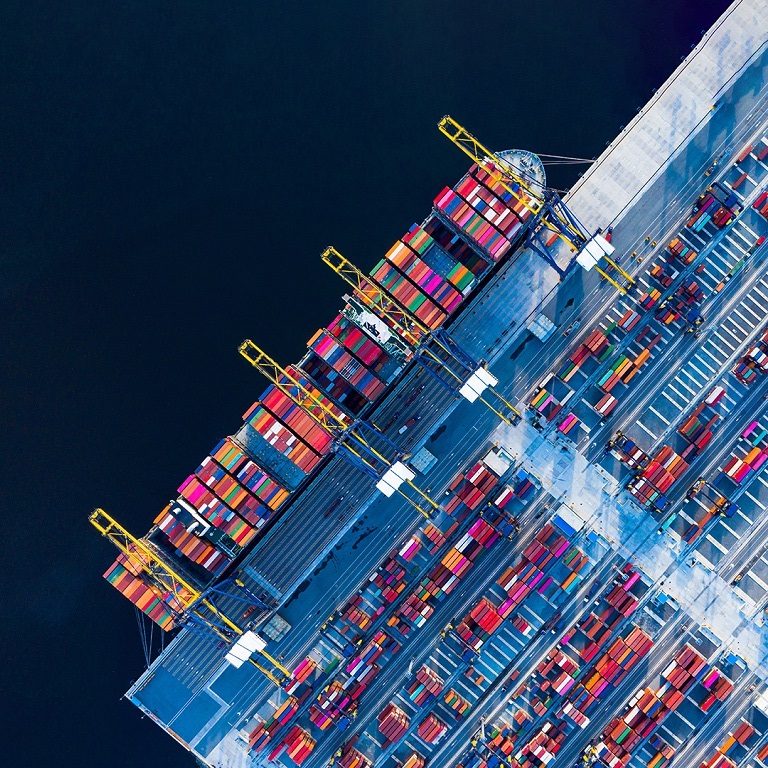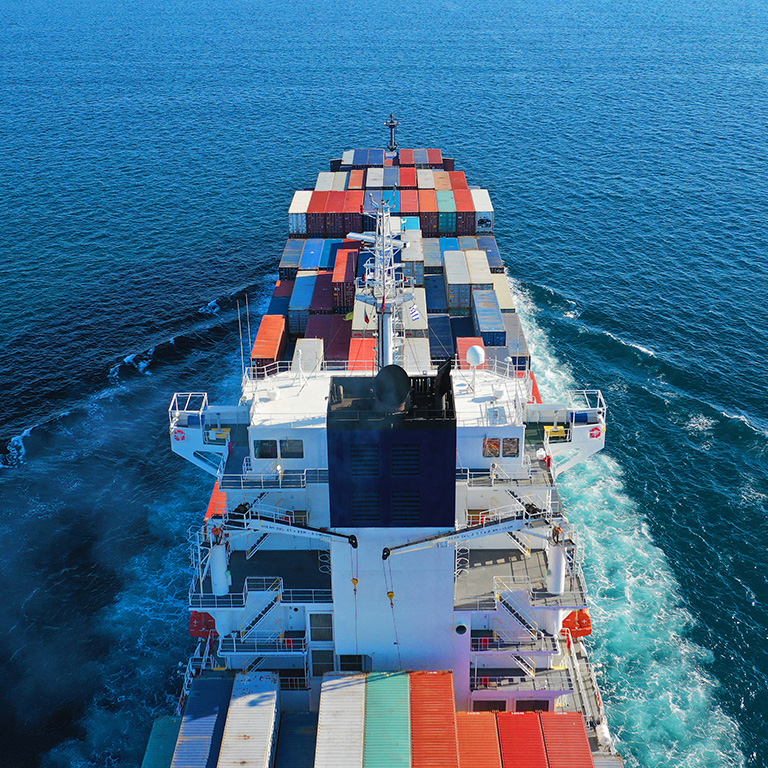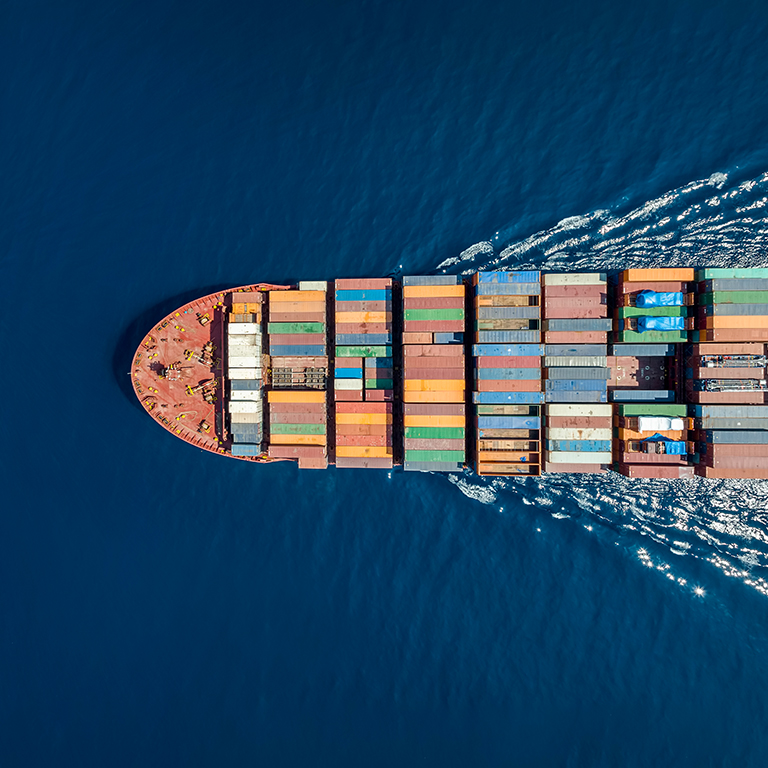
Marcus Baker
Global Head of Marine, Cargo and Logistics
-
United Kingdom
Ship owners and operators, maritime financiers, shipyards, ports and terminals, logistic companies, and service organizations work as an ecosystem that underpins global supply chains, moving cargoes via hundreds of millions of digital and physical interactions every day.
As industry dynamics evolve, factors such as vertical integration, customer demands for faster service and real-time information, and increasing environmental standards and industry regulations are driving change. Coupled with technological advances and the proliferation of big data, there is a heightening and proliferation of risk .
Maritime and logistic companies also face unexpected risks, including conflicts, attacks on ships, cyber threats, and supply chain disruptions caused by delays, backlogs, and a changing trade landscape.
This dynamic landscape necessitates swift adaptation by organizational leaders. These businesses must also navigate the insurance market response to changing capital inflows and losses, which can influence pricing, ability to cover risks, and claims resolution processes.
With the right insights, customized i nsurance programs, and targeted risk mitigation strategies, maritime and logistics companies can more effectively navigate the changing risk landscape to minimize losses and liabilities, while looking to capitalize on opportunities to future-proof growth and resilience.
Marsh’s global team of industry specialists has the scale, scope, and capabilities to solve a variety of risk issues facing organizations in the maritime and logistics ecosystem. Our capabilities in all subsectors of the maritime and logistics ecosystem allow us to provide the insights and perspectives across the value chain.

01/06/2026
Port and terminal allisions risk costly damage, business interruptions, and supply chain disruption; insurance and risk management are vital for protection.

12/19/2025
Our annual P&I club renewal updates provide information on P&I club renewal policies, supplementary call history, general increase history, International Group reinsurance rates, and P&I release calls.

10/06/2025
For Marsh’s 2025 edition of the P&I Market Review we engaged with the P&I clubs to gather their insights.
Shipping companies typically seek insurance coverage for a range of risks, including hull damage, machinery damage, liabilities arising from vessel operations (such as those to crew and third parties), and “perils of the sea” including grounding, stranding, sinking, and capsizing. In some locations, war, strikes, piracy, or ice damage also pose risks.
Shipyards generally hold title to the vessels they build and therefore will look to insure against manufacturing-related risks that lead to damage, such as fire, as well as standard shipping perils encountered during sea or port testing. Ship repair yards often purchase liability coverage for the vessels in their charge and that they work on.
Maritime financiers look to insure the assets they have capitalized against these perils in case the vessel owner’s insurance coverage lapses or proves insufficient. Logistics companies often buy property and liability coverage, and many companies operate across multiple subsectors, thereby facing a multitude of these perils.
Ports and terminals typically purchase property coverage for their owned assets and liability coverage for third-party property and cargoes they handle and store. Promoting the health and safety of their workforce and visiting crews remains a major challenge. While new ways of working, emerging technologies, and digitization can introduce complexities, they also offer opportunities. Additionally, congestion management and compliance with environmental regulations can present concerns for ports and terminals.
Cargo insurance primarily offers protection against accidental physical loss or damage while goods are in transit. Policies may also reimburse a cargo owner for general average or salvage charges that the owner may be obligated to pay. It may be extended to cover goods in temporary storage, during their overall transit along the supply chain, including in inventory at their place of origin — this is called a stock throughput policy .
In addition to physical losses, liabilities incurred during maritime operations are a major risk exposure.
Our global team serves clients of all sizes, including those with international operations seeking to spread risk worldwide. With specialists in every major insurance hub, we work directly with insurers across global markets to present risks and deliver results aligned with client goals. Our presence in key locations allows direct access to insurance capital worldwide. This approach allows us to have better oversight of client information, helps maintain consistent standards, and supports greater transparency. It also assists in identifying potential opportunities for insurance and reinsurance arbitrage and in optimizing reinsurance structures when appropriate.

Global Head of Marine, Cargo and Logistics
United Kingdom

Global Sales Leader, Marine, Cargo & Logistics Practice
United Kingdom

Global Head of P&I
United Kingdom

Managing Director of Global Digital Cargo, Marsh Canada
Canada

Head, Marine, Cargo & Logistics, US and Canada
United States

Head, Marine, Cargo, & Logistics, Latin America & The Caribbean
Brazil

Head, Marine, Cargo & Logistics, Asia
Singapore

Head, Marine, Cargo & Logistics, UK
United Kingdom

Head, Marine, Cargo & Logistics Europe
Netherlands

Head, Marine, Cargo, & Logistics, Northwestern Europe and Switzerland
Belgium

Head, Marine, Cargo & Logistics, Eastern Mediterranean Region
Cyprus

Head, Marine, Cargo & Logistics, IMEA
United Arab Emirates